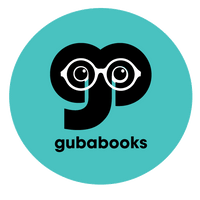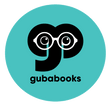10 Fantastic Resources for Adult Bangla Language Learners
Tasnim Shamma, Lilburn GA, USA
My earliest memories of learning Bangla (also referred to as Bengali) were with my mom after dinnertime, poring over the alphabet from a thin, tattered children’s textbook from Bangladesh. She taught me all of the letters, how to read and write, and for that I am so grateful. Thus began my love of the Bangla language. As I got older I forgot a lot of it and periodically tried to learn it on my own.
But when you have your own kids, there’s more at stake. You want to teach them the beauty of all the languages you know. However, I couldn’t conjugate verbs properly and some of my sentences were Banglish (a mix of English and Bangla).
My one and two-year-old were learning my very-broken Bangla and I could even hear them struggling with figuring out what the right verbs to say were. So I began to study the language again more seriously. The bilingual books and posters from Guba Books have been a critical learning bridge to teach my kids Bangla in a fun way.
Bangla Alphabet Flashcards from Guba Books
However, for adults, aside from Guba Books, there are not nearly enough books and resources out there for English speakers to comprehensively learn Bangla/Bengali. Especially since it’s the SIXTH most spoken language in the world, according to Ethnologue. For others also on a Bangla-language learning journey, I’ve compiled a list of my top ten favorite tools/resources.
- Teach Yourself Complete Bengali by William Radice, a Senior Lecturer in Bengali at the School of Oriental and African Studies, University of London. This textbook is my number one pick for anyone starting from scratch and wanting to learn how to read and write basics, with a wealth of Bengali literature, history and poetry throughout to build a deeper connection with the language. An hour a day with this book for a few months and you’ll be on your way to reading and writing like a pro. Aside from the free audio available online however, it won’t help with your speaking skills as much unless you already know the language. You’ll need a friend to practice speaking!
- DICTIONARY: For any language, a dictionary is important to have! Dr. Hanne-Ruth Thompson’s Practical Dictionary is a great pocket-size one to keep on hand. [Note: She’s also the author of Beginner’s Bengali and Bengali: A Comprehensive Grammar (a 774-page complete reference guide to Bengali grammar).] Also, a highly regarded and comprehensive free online dictionary is the Samsad Bengali-English Dictionary, though it takes a bit of time to learn how to use it efficiently.
- Epar Opar Bangla: Bangla Across Borders! This is a high-quality and free online self-teaching course with access to a textbook, workbook, script tutor, 45 video clips and 104 audio files. It’s offered through the University of Washington’s Language Learning Center. After creating an account login, you’ll gain access to all of the material with a username and password.
- Colloquial Bengali With free audio online, it’s a light and easy book to read through and it’s a good one if you’re having trouble finding a speaking partner.
- SUPRIYOSEN: Includes four Bangla language textbooks currently used by children in Bangladesh and a course curriculum for a free 14 week intensive guided course with videos put together by a retiree (Supriyo Sen) who clearly loves the language. Includes links to almost everything you might need including a Pronunciation Wizard, Verb Conjugation Wizard and Sentence Construction Wizard.
- SISIMPUR: As Guba Books has shown, children’s content is perhaps the best and most accessible way to learn a new language. It’s fun and engaging and doesn’t assume much prior knowledge. Sisimpur, the Bangladeshi version of Sesame Street, is a show that began broadcasting in 2005 and has a full cast of fun Bangladeshi characters like Halum the Bengal tiger (in addition to Elmo and his crew). Fun Fact: Artist Mustafa Monwar, who helped create Bangladeshi puppets on Sisimpur is the great uncle of Guba Books founder Raya Rahman. Creative family!
- DURONTO: The first children’s TV channel in Bangladesh, Duronto TV, launched in 2017. It has a great variety of educational and entertaining shows with easy vocabulary to help you learn new words and pick up on cultural practices. Some of my favorites are the “natok”-style (soap opera-ish) kids shows that keep you hooked and wanting to know what happens in the next episode. For something more purely educational, to learn the alphabet alongside adorable puppets, check out their show Bornomalar Ghor (“Alphabet Room”).
- NTV: One of the country’s top channels, you can access a 24/7 Livestream of News, Sports, Music and more here. A few minutes a day of exposure to the harder vocabulary used during newscasts and political programs is good to practice using context clues and matching the visuals to what’s being said. If you’d rather get into a good soap opera on NTV and gain exposure to conversational Bangla/various dialects, that works too. Watching the advertisements is also a great way to increase reading and comprehension skills! Other Bangladeshi news channels also offer streaming options through their YouTube channels.
- GOOGLE TRANSLATE: A godsend for any modern language learner. You can use the mobile app to have a real-time conversation with others by clicking on “Conversation”. When you don’t know what a sentence means you can also take a picture or “scan” it and instantly get a word-for-word translation or a full translation of the phrase/page. Check out the screenshots in this article to learn how to make the most of it. The web version is also handy in translating entire websites for you.
- SOCIAL MEDIA: If you’re not able to dedicate an hour a day to serious study or get a private tutor, there are many public and private social media groups you can join to practice what you do know and learn new words. And also many, many mobile apps and educational videos on YouTube/online as well.
Good luck (Shubbho kamona)! শুভকামনা!
Tasnim Shamma is a first generation Bangladeshi-American. She was born in Dhaka, raised in Queens, NY and now living in Lilburn, GA. She is taking a break from her radio news broadcasting career to chase around two toddlers and read books from GubaBooks.com to them in English and Bangla!

